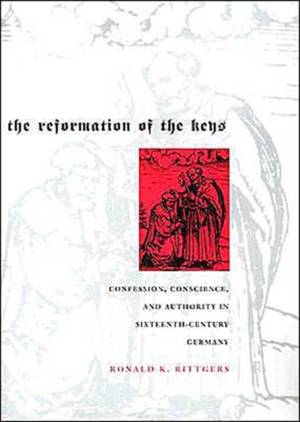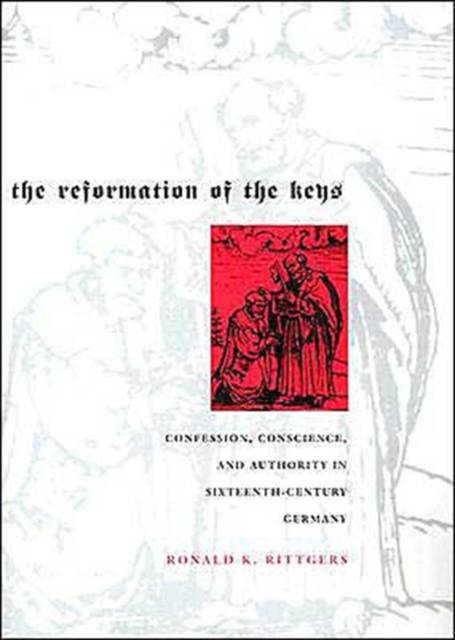
Vous voulez être sûr que vos cadeaux seront sous le sapin de Noël à temps? Nos magasins vous accueillent à bras ouverts. La plupart de nos magasins sont ouverts également les dimanches, vous pouvez vérifier les heures d'ouvertures sur notre site.
- Retrait gratuit dans votre magasin Club
- 7.000.000 titres dans notre catalogue
- Payer en toute sécurité
- Toujours un magasin près de chez vous
Vous voulez être sûr que vos cadeaux seront sous le sapin de Noël à temps? Nos magasins vous accueillent à bras ouverts. La plupart de nos magasins sont ouverts également les dimanches, vous pouvez vérifier les heures d'ouvertures sur notre site.
- Retrait gratuit dans votre magasin Club
- 7.000.0000 titres dans notre catalogue
- Payer en toute sécurité
- Toujours un magasin près de chez vous
The Reformation of the Keys
Confession, Conscience, and Authority in Sixteenth-Century Germany
Ronald K Rittgers
Livre relié | Anglais
157,95 €
+ 315 points
Description
The Catholic Church's claims to spiritual and temporal authority rest on Jesus' promise in the gospels to give Peter the keys to the kingdom of heaven. In the sixteenth century, leaders of the German Reformation sought a fundamental transformation of this "power of the keys" as part of their efforts to rid Church and society of alleged clerical abuses. Central to this transformation was a thoroughgoing reform of private confession.
Unlike other Protestants, Lutherans chose not to abolish private confession but to change it to suit their theological convictions and social needs. In a fascinating examination of this new religious practice, Ronald Rittgers traces the development of Lutheran private confession, demonstrating how it consistently balanced competing concerns for spiritual freedom and moral discipline. The reformation of private confession was part of a much larger reformation of the power of the keys that had profound implications for the use of religious authority in sixteenth-century Germany. As the first full-length study of the role of Lutheran private confession in the German Reformation, this book is a welcome contribution to early modern European and religious history.Spécifications
Parties prenantes
- Auteur(s) :
- Editeur:
Contenu
- Nombre de pages :
- 330
- Langue:
- Anglais
Caractéristiques
- EAN:
- 9780674011762
- Date de parution :
- 15-03-04
- Format:
- Livre relié
- Format numérique:
- Genaaid
- Dimensions :
- 167 mm x 240 mm
- Poids :
- 621 g







